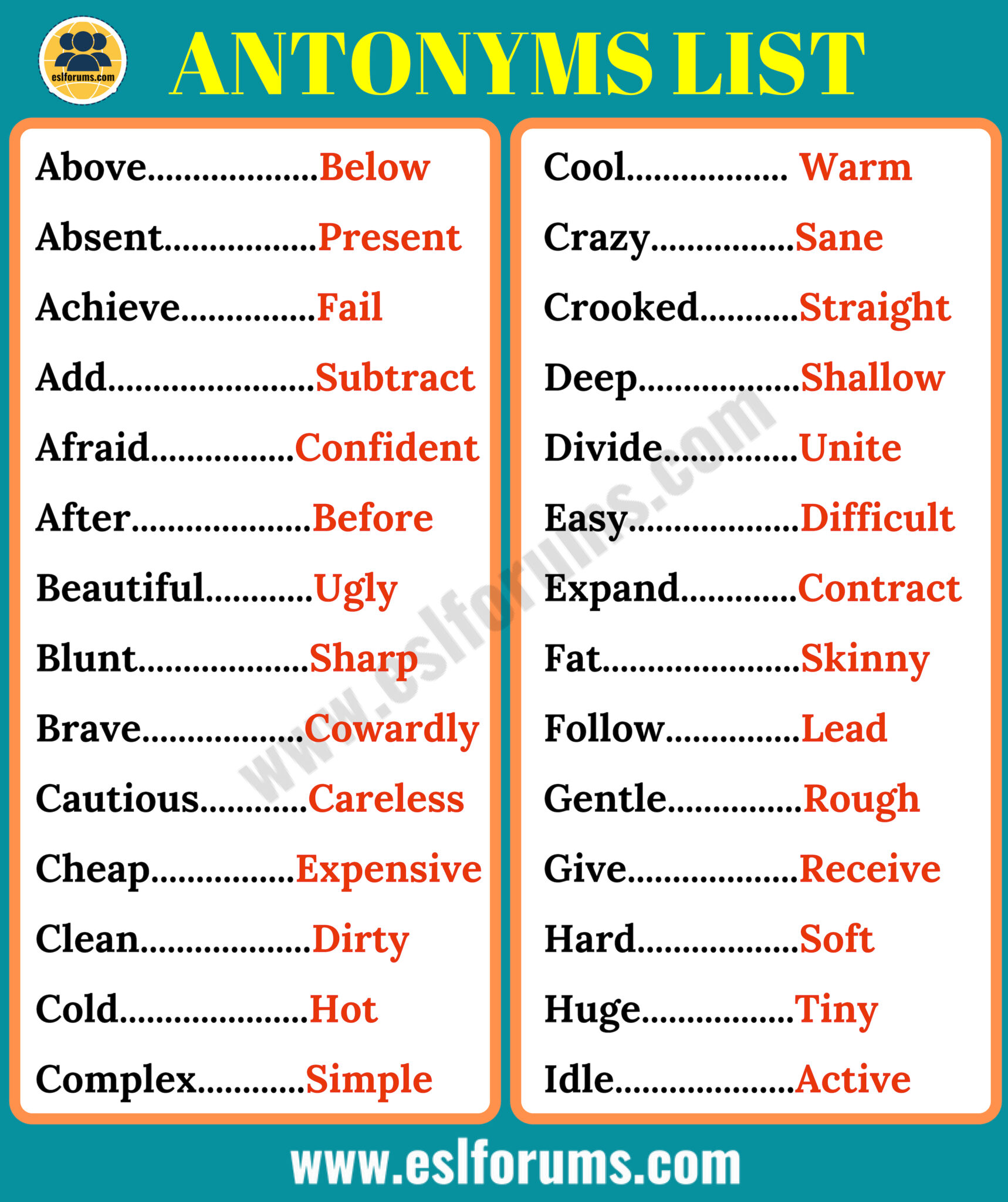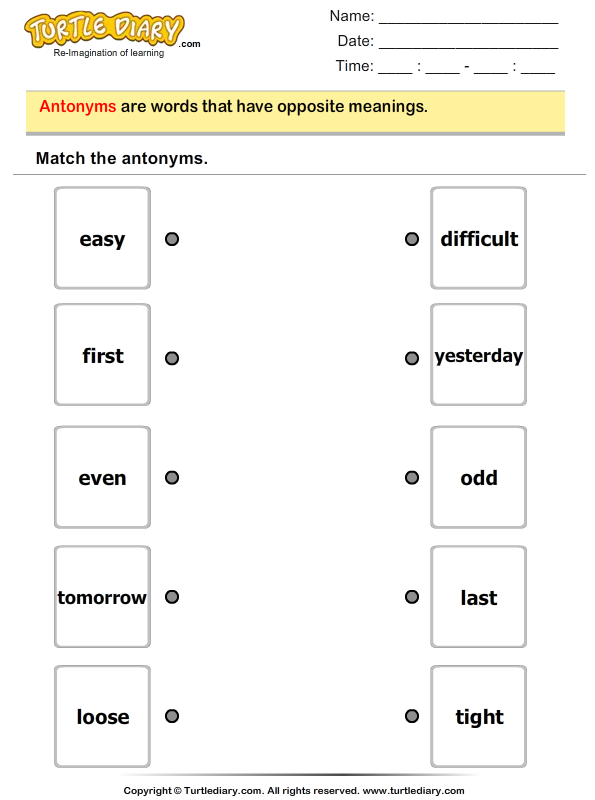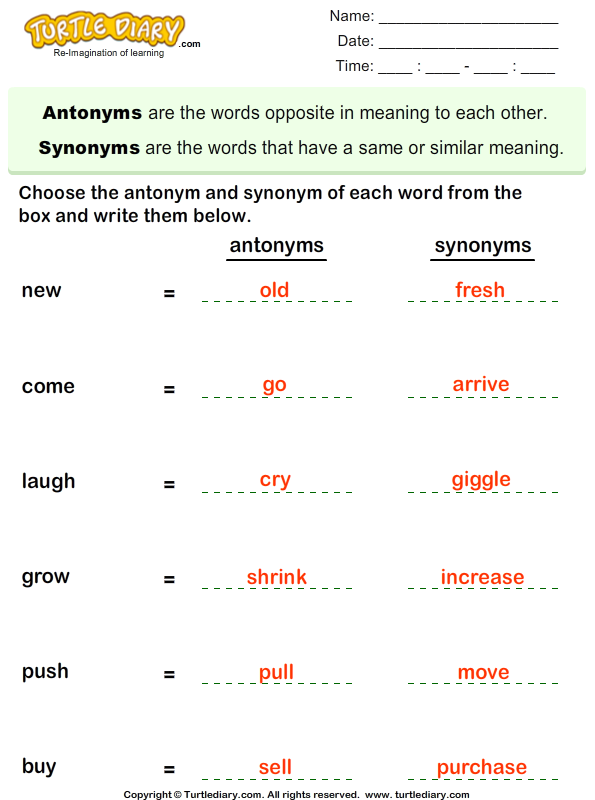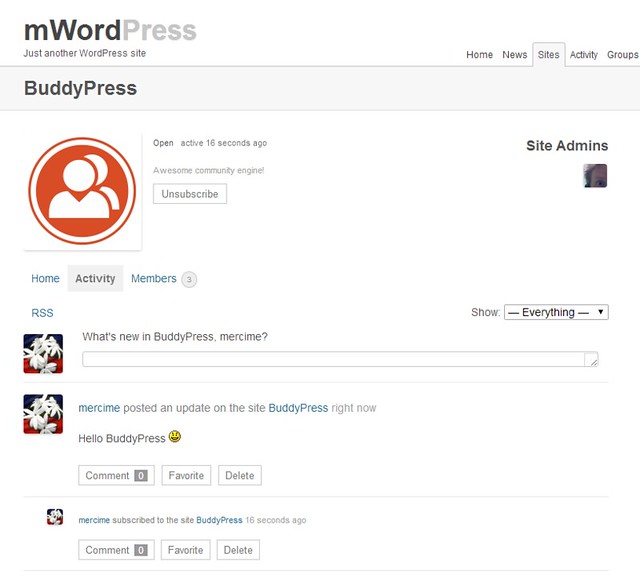In upper elementary grades, teaching antonym practice lists becomes more important as students' vocabularies increase. From third through fifth grade, students learn to use words from antonym lists and synonyms, words with similar meanings, to help them understand new and less familiar terms. VocabularySpellingCity helps students recognize these relationships with engaging, interactive learning activities and antonym games for kids covering varying lists. An antonym is a word which means the opposite of another word. Synonyms and antonyms are useful to know because they improve reading and writing skills. By learning antonyms, you learn the logical opposites of important words, thus enhancing your overall command of language.
Challenge your students to grow their vocabulary by learning that though some words mean the same thing, they have different inclinations when used. Games keep your students engaged in their lesson while expecting them to use context clues and other previously acquired skills. Lesson plans and worksheets take the guesswork out of planning a day of class. Advanced students may prefer using our third grade synonym and antonym learning resources. Vocabulary development helps second graders advance their reading and writing skills.
This guided lesson uses exercises and techniques targeted to building vocabulary. Kids will be tasked with using descriptive adjectives, distinguishing between similar verbs and adjectives, and using context clues to determine the meaning of a word phrase. For more vocabulary boosters, check out the worksheets that align with this lesson.
Oddly enough, to better understand the meaning of a word, we can take a look at its antonym, or opposite meaning. Most dictionaries provide synonyms and antonyms, as well. Our learning games for kids help in building skills needed for success in school.
While playing our fun educational games, kids learn to read with phonics, build skills in math, language, social studies, science and much more. Our educational videos encourage children to keep learning, even after school hours. Practice writing synonyms and antonyms with this Christmas Words Activity. Students will be asked to read a list of holiday themed words and write a synonym and antonym for each given word.
For example, write a synonym and antonym for "dashing". A mix of teacher-created worksheets combines challenging games, like word searches and crossword puzzles, with language lessons. Printable word-matching assignments have students select the appropriate synonym or antonym to specific words. A vocabulary builder assignment has students circle the correct synonym from a group of possible answers. These ready-to-go worksheets save time for educators who would otherwise have to develop their own game plan.
Enjoy our "online Greek school" in "Phrases and More". Have fun learning with hangman, greek memory games, tests, quizzes and online learning cards in Greek for Kids. Slow paced audio recordings gives you time to process and learn with ease. Search for a specific word with our online dictionary. Language is nuanced; finding the right word, when something isn't exactly the same or the opposite is an important communication skill. These antonyms and synonyms worksheets, writing activities, and vocabulary packets will enhance oral and written language skills by focusing on antonyms and synonyms.
In order to better understand antonyms, let's take a look at what the word 'synonym' means. A synonym is a word that has a similar meaning to or exactly the same meaning as another word. Understanding and using antonyms can improve our writing skills and vocabulary knowledge.
It takes a little extra time to look up new words, but the results are well worth the effort. Second graders continue to form their personal lexicons with synonym and antonym practice. The assortment of tools in the resource library aims to add new hues and tones to students' writing and speech.
There are plenty of ways to sprinkle examples of antonyms, synonyms, and homonyms for kids into their everyday activities. Competitive exams feature a lot of questions on vocabulary, especially on synonyms and antonyms. Learning antonyms and synonyms can greatly enhance your vocabulary and help you ace the verbal section well. Antonyms are an important word type to use in almost any form of writing. Many people though, don't actually understand what an antonym is. Most people would be surprised to hear that they probably use antonyms all of the time without realizing it though.
This guide will take you through what an antonym is, how it is used in writing, and give you some of the reasons why learning antonyms is important in any type of writing. We explain what synonyms and antonyms are and how children are taught to use synonyms to improve their writing in primary school. Apart from the above-given MCQ type questions, synonyms and antonyms are asked in reading comprehension sections as well. Candidates can go through the exercise on Synonyms Questions and Answersfor practice and revision.
Before learning various words of synonyms and antonyms, let us first understand the meaning of both the words. Synonyms and Antonyms form an important part of competitive exams. Candidates frequently face questions related to synonyms and antonyms in the English language section of various Government exams such as SSC, RRB, Bank, IBPS and more. Some of these books define antonyms and synonyms for younger children, then progress into teaching why they make a difference in writing.
The importance of antonyms and synonyms in writing can not be overstated. When writing creatively or in non-fiction, you will almost certainly have to use antonyms to show an opposite relationship. Knowing these, or learning how to correctly create these, is important because it allows you to use different terms to describe something effectively.
Students find the synonym or antonym for each word by scanning a QR barcode with an iPad or smartphone. Students choose the correct synonym or antonym from the list. 3) Eliminate answer choices that have no clear antonym.
So, this is a great technique for use on the GRE because it only contains antonym questions (it doesn't contain any synonym questions). While almost every word has a synonym, remember that not all words have antonyms and eliminate them first. Word-O-Rama's game show format asks students to choose correct antonyms, synonyms, definitions and sentences for words on their list.
The same lesson has students demonstrate synonyms by acting them out. Each sentence on this second grade reading worksheet has an underlined word, and kids select the opposite of that word from among three word choices. This second grade reading worksheet features common synonyms. Kids connect a word in the first column with its synonym in the second column. Using antonyms can help improve our vocabulary, as well.
As we saw with the word 'scared,' we tend to have a list of 'go to' words when we write. It is easier to pull out words that we are comfortable using, but some of those words may be overused. When we look at a list of antonyms, we discover new words to add to our 'go to' list, and the more we use new words, the better our vocabulary will be. Improve your language arts knowledge with free questions in "Use context to identify the meaning of a word" and thousands of other language arts skills.
We have provided some important list of this topic which will surely be helpful for you in cracking this topic. The best way to study is to go through the daily vocabulary words given on bankersadda.com. You can also read these words from any good source like newspaper or magazine. Try to use them in sentences then only you will be able to understand its meaning and remeber it for a longer time-period. Candidates tend to lose marks in the English section if their vocabulary is not up to the mark.
The usage of Synonyms and Antonyms is essential in day to day communication as well. Hence, we are providing the list of Synonyms and Antonyms containing more than 400 English synonym and antonym words. Here is a graphic preview for all of the antonyms worksheets. Our antonyms worksheets are free to download and easy to access in PDF format. Use these antonyms worksheets in school or at home.
Many of the following books were written expressly for the purpose of teaching antonyms and synonyms to children. Antonyms are basically just words with opposite meanings to one another. Conversely, synonyms are words with meanings that are the same as one another. Most people don't know that there are, in fact, different types of antonyms though.
Below we'll take a look at these different types of antonyms, explain what they are, and provide some examples to make it clearer. The English language is full of pairs of words that have subtle distinctions between them. All writers, professionals and beginners alike, face the challenge of choosing the most appropriate synonym to best convey their ideas. When you pay particular attention to synonyms in your writing, it comes across to your reader. The sentences become much more clear and rich in meaning.
However, it is important to remember that not all pairs of words in the English language are so easily interchangeable. The slight but important differences in meaning between synonyms can make a big difference in your writing. For example, the words boring and insipid may have similar meanings, but the subtle differences between the two will affect the message your writing conveys. The word insipid evokes a scholarly and perhaps more pretentious message than boring. On this second grade reading worksheet, each crossword puzzle clue is a sentence with a highlighted word. In this shades of meaning game, kids identify common synonyms that are grouped together.
Utilizing synonyms is an elegant and frequently applied method to to make a text more pleasant to read. If the same word is used very often in several sentences, it might very well be the case, that this same word should describe something different in each of the sentences. Since synonyms are usually nuanced variations with slightly different meanings, their use will emphasize special characteristics, and thus the text will be more precise.
A thesaurus is a resource similar to a dictionary that helps writers to search synonyms - as a device to compose a verbose and scintillating text. This list provides some examples of commonly employed synonyms. These lists also contain examples for the most common 100 words or so; however, the intention is not to replace a thesaurus. For the selection of the words the top 50 lists of the most "common words in English" were a preferred inspiration - mostly verbs and adjectives, only rarely nouns and adverbs. Word Frog is a language arts game that provides practice in matching antonyms, synonyms, and homophones. The target word appears on the frog, with the word category underneath defining the relationship to be matched.
Sight word reading practice activities Feed a word monster. If a child is only practicing a few words, make multiple cards of each word. Decorate a cardboard box as a "word monster." Cut a hole for the mouth and tell children the monster is "hungry" for a certain word for them to feed it. In this series of articles, you will learn antonyms for commonly used words. The lists are arranged in the alphabetical order of words.
For further questions or information regarding competitive exams, study material or best books for preparation, candidates can turn to BYJU'S. Antonym opposite words contradict each other and meet opposite meanings. When we learn a language, when we learn a word in that language, it will be very useful for us to learn both the opposite and thesynonymsof this word. First, using a dictionary or thesaurus , make a list of synonyms to the word "moreover." Below are clever, educational books that are perfect for teaching antonyms and synonyms. Hopefully, the above examples have made the meaning of complementary and binary pair antonyms much clearer.
Students find the synonym or antonym for each word by scanning a QR code with a phone or iPad. Choose the correct word from the list to complete each analogy. Determine whether the word pairs are antonyms or synonyms. This quiz was created to assess my students on their knowledge of antonyms and synonyms. The words within the quiz directly relate to the NYS Module 3, lesson 20 spelling words. 4) Eliminate answer choices that are close synonyms.
Spotting synonyms within the answer choices can be valuable because it allows you to narrow your viable answer choices. If two of the answers have very similar meanings, then the correct answer is too ambiguous. Therefore, it is possible to eliminate these choices.
The SAT/GRE are tough tests, but they always present one answer choice that is clearly correct. See if you can eliminate two answer choices from the following example. As you work with your draft, you will want to pay particular attention to the words you have chosen. Do they express exactly what you are trying to convey?
Familiarity with synonyms and antonyms can be helpful in answering these questions. Word activities, where children are given word cards with various groups of synonyms which they have to put into groups according to meaning. Giving children a thesaurus in which to look up words to improve their vocabulary.





























